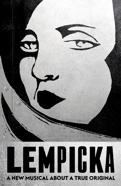Lempicka Creators Carson Kreitzer and Matt Gould on Broadway, Art and the 'F**kery of Life'
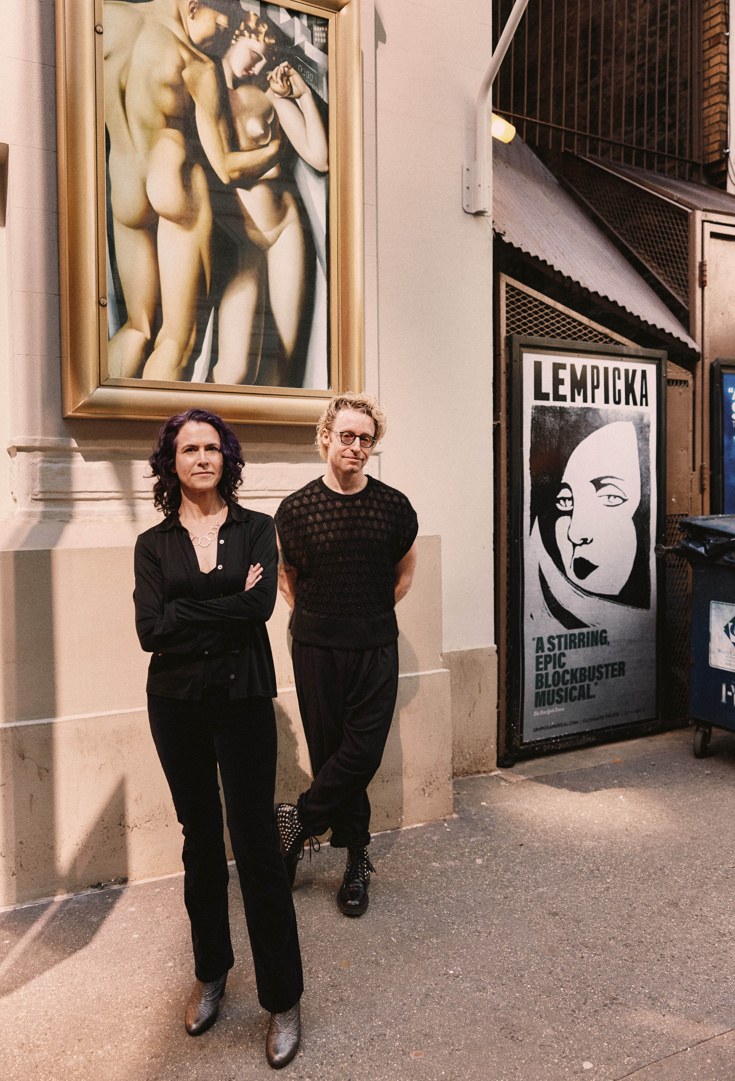
(Photo by Emilio Madrid for Broadway.com)
Lempicka—a new Broadway musical about the notoriously iconoclastic Polish artist, who, after settling into life as a wife and mother in Paris following the Bolshevik Revolution, made a lover of her female muse—has been made of equal parts reverence and rebellion since playwright Carson Kreitzer first proposed the idea to composer Matt Gould over burgers and fries 16 years ago.
“As artists in theater,” said Gould from the balcony of the ornamented Longacre, the site of his and Kreitzer’s Broadway debuts, “every couple years we go through a thing where it’s like, ‘Everything is sh*t! We have to start over!’” It’s an instinct he facetiously compares to Tamara de Lempicka’s brush with arson when she (played in the musical by Eden Espinosa), Italian artist Filippo Tommaso Marinetti (played by George Abud) and a café full of drunk artists rallied to burn down the Louvre. Tamara offered use of her car. It had been towed. The Louvre lived to see another day.
Gould’s more measured translation of this cross-generational instinct to riot: “We want to make something new. We want to make something that matters.”
But just as Tamara’s rebellious (and nearly pyromaniacal) life in interwar Paris didn’t preclude her from harnessing renaissance painting techniques to give her work its signature glow, Kreitzer and Gould’s desire to bring something new to Broadway also has them embracing their predecessors. Stephen Sondheim’s artist-centric Sunday in the Park with George naturally tops the list of inspirations, but it sits alongside the booming ‘80s mega-musicals that can rattle walls—and attract crowds. Listen to Espinosa’s already lauded rendition of the Act 1 closer “Woman Is” and you’ll hear traces of the show’s musical lineage.
“It really felt like it would be quite a thing to drag up the mountain,” said Kreitzer. “Which, by the way, it was,” countered Gould, noting for context, “When we started this piece, George W. Bush was in office.” But when you find a character who personifies a woman’s well of contradictions and make her sing like Eva Perón, you can’t help but set a few things on fire.
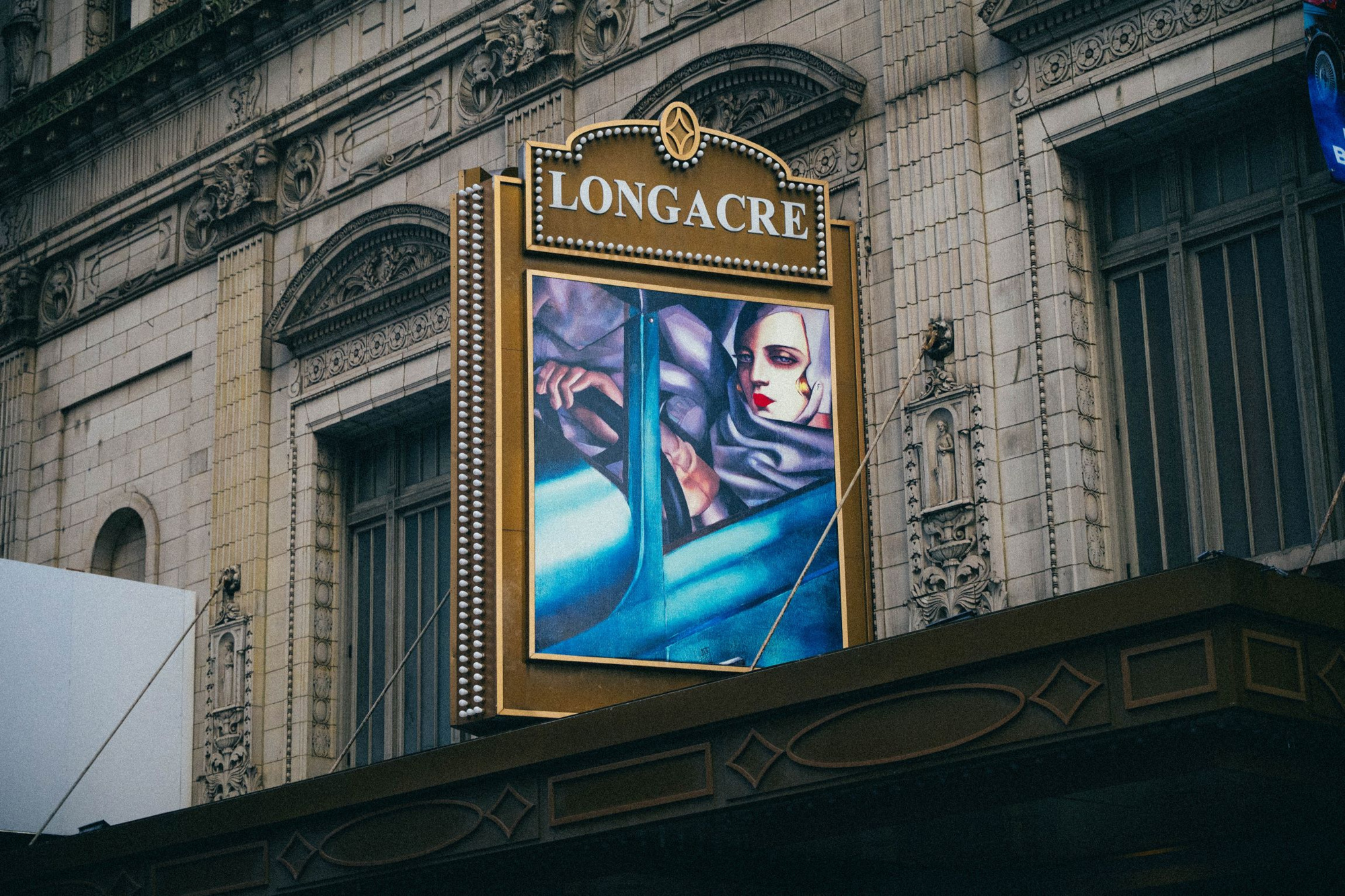
(Photo: Kevin V. Doan)
Carson, you’ve said this whole project came from picking up a book of Tamara de Lempicka’s art. What about her paintings caught your attention?
CARSON: You just saw a piece [in the show] where Tamara says to Rafaela, “I'll make you immortal. A hundred years from now, people will stand before your image and wonder, who is she?" That is the experience I had opening that book and seeing the portrait of Rafaela. Who is this person? That is what Tamara's work can do.
Instead of showing you everything, she hints that there's more below the surface.
MATT: She couldn't show you everything. If she showed you everything, they would've burned her. It had to be hidden, which, sadly, or beautifully, makes so much great art.
CARSON: It is still a world where it's difficult for a woman who wants to live with the same privileges that men take for granted. What she wanted was what all male artists had, and that is a wife and a lover. The paintings that she did of Rafaela are her best work. This is the person that brings out everything she can be as an artist. Why shouldn't she have that?
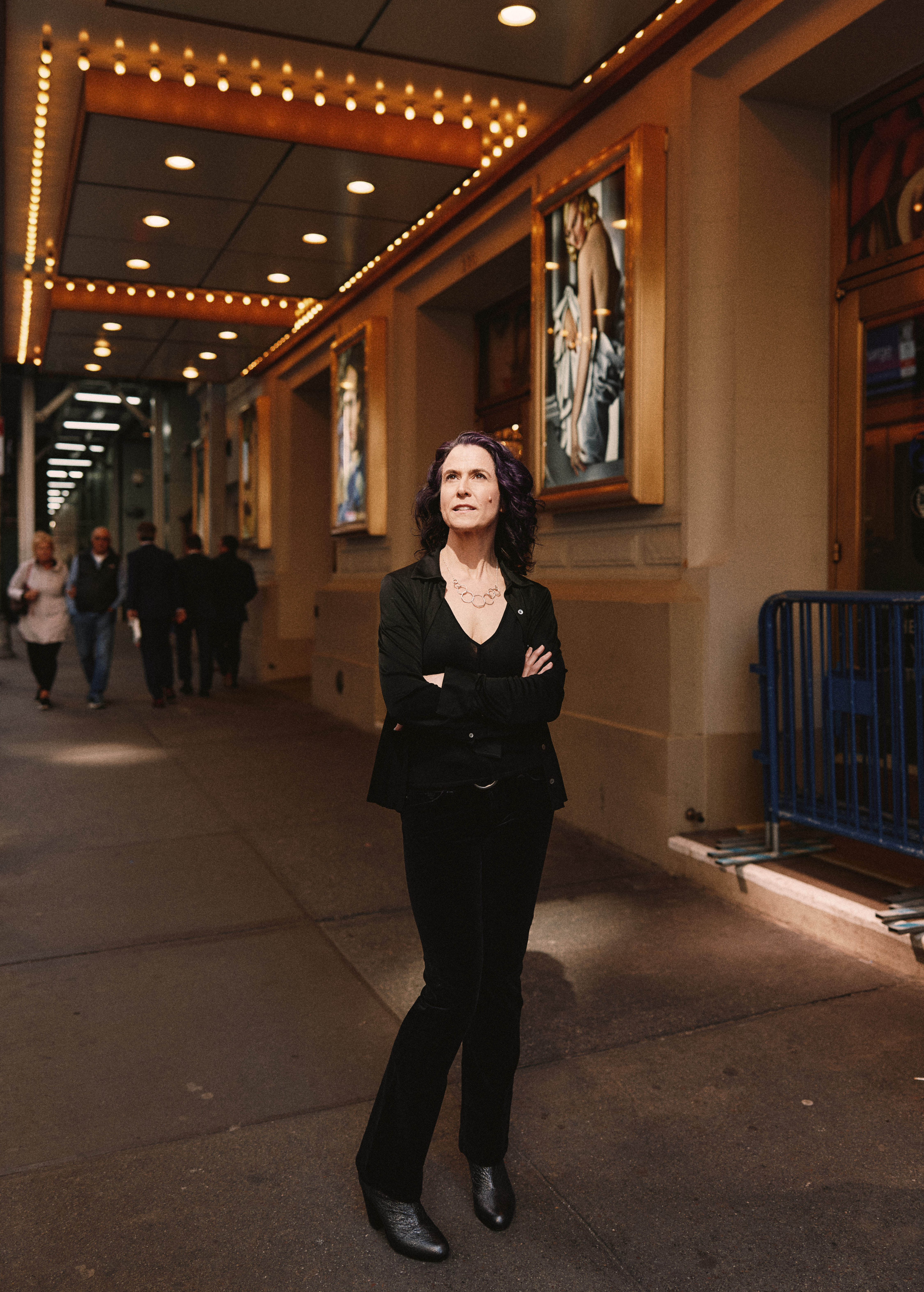
The world has changed a lot in the past 16 years, for better and worse. Do moments in Lempicka periodically ring differently?
CARSON: When we were auditioning to do this production, Putin had just invaded Ukraine. People who came in for the ensemble had a line: “Revolution! The land belongs to those who work the land. The czar is gone, and so are the corrupt classes.” I actually had tears spring to my eyes with the realization that the corrupt classes are back and nothing has changed. In La Jolla, Roe v. Wade was overturned the day we were freezing the show. There was a line the Baroness had: “The world may appear more free than we thought it would ever be. Nowhere else but here in Paris. But things can always turn back.” There was an audible gasp in the audience that night. Working on a story about an artist trying to live her life and love who she loves in a time of impending fascism is just a little too close to home.
Any discussion of a musical about an artist automatically brings to mind…
MATT: Sunday in the Park, baby!
Did you think about that show while you were writing Lempicka?
MATT: Of course! First of all, Sunday in the Park with George, I would say, is maybe my all-time favorite musical. Because I see myself in Sunday in the Park with George. I weep through the last 20 minutes of that show in any production ever.
"I am a playwright. Tamara made me a musical writer. But I don't know if it would've occurred to me without 'Sunday.'"
–Carson Kreitzer
How do you feel about that comparison?
MATT: Let them compare. We stand on the shoulders of those incredible artists, as we stand on the shoulders of Tamara, as she stood on the shoulders of others. That is the legacy of art and theater. We are given the gift from another generation, and then we get to remix it, remake it, retake it. Our show is not Sunday in the Park with George at all. And of course, it is inspired in a million ways by that epic, beautiful piece.
CARSON: I think that's a show that meant so much to both of us and is something that we talked about from the beginning—and I think is one of the things that made me think this could be a musical, and this should be a musical. I am a playwright. Tamara made me a musical writer. But I don't know if it would've occurred to me without Sunday.
MATT: And Evita, for that matter. And Les Mis. And Spring Awakening.
CARSON: Evita—the complicated, difficult, bombshell blonde—and Sunday in the Park. Those were both examples that made this world feel possible. That grandeur, that size of something like Evita, the big, bombastic ‘80s musicals—and the delicacy of Sondheim. Looking at the pointillism. How is this work built up, stroke by stroke, dot by dot. I think that's one of the things that makes us really good collaborators: I am in the tiny, tiny, tiny details. Matt is in the sweeping open notes and the way the heart cracks open.
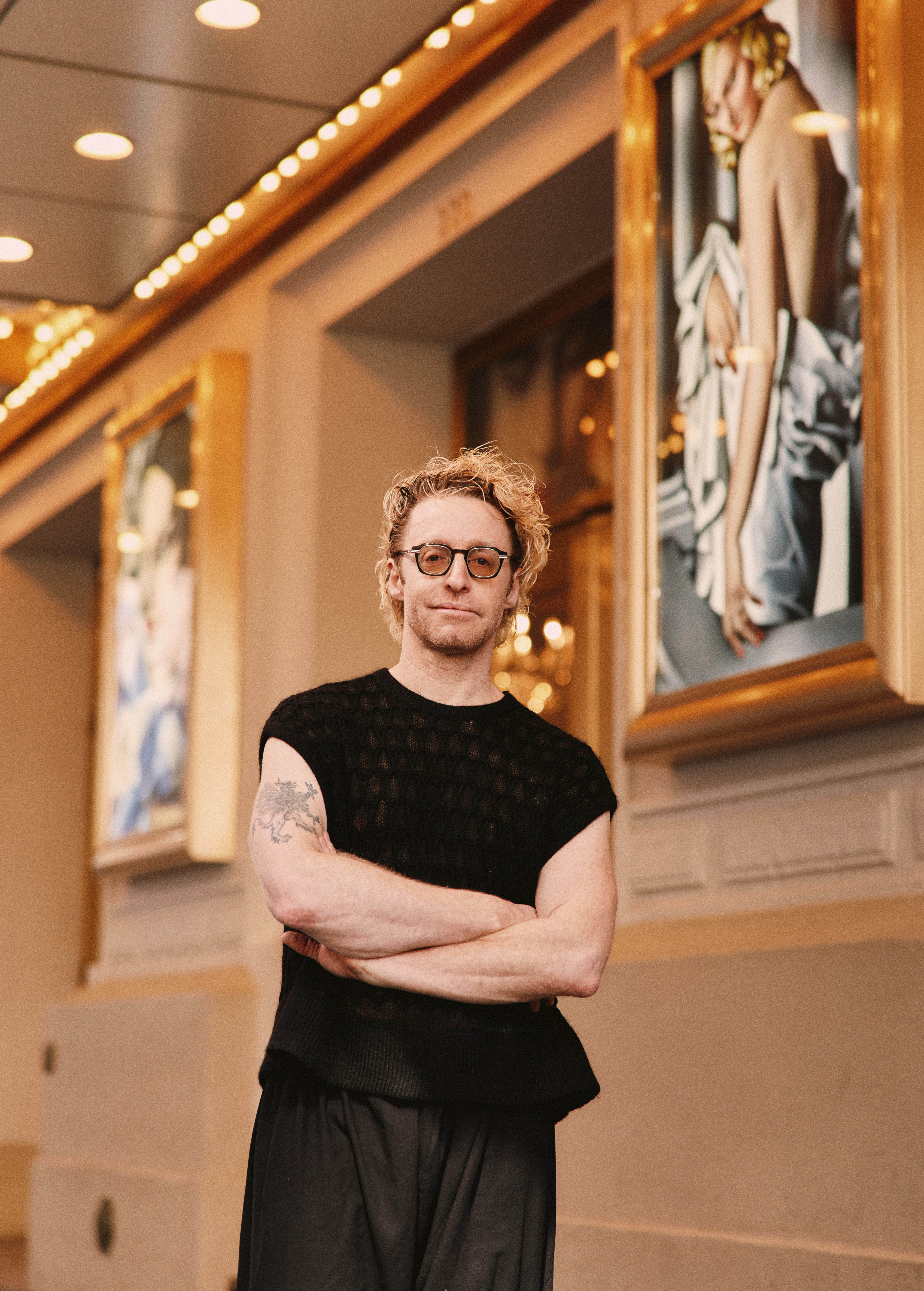
Speaking of which, Matt, when you were writing this music, did you realize you were composing something only a handful of people would be able to sing?
MATT: No, because I can sing it all, so what’s the problem? [laughs] It's never the intention to be difficult. The intention is to capture the complexity of the people. And I guess you're sitting here talking to two complicated people.
You found the perfect Tamara in Eden Espinosa. When did she land on your radar?
MATT: I saw Eden sing a cabaret of her songs at some point. And then she was working with Billy Porter, and I was working with Billy, and I wrote to Eden on Facebook and was like, “Your work is amazing. I'm a young composer. Would you ever sing my stuff?” She didn't respond. And then five years later, she came to see a workshop of my other show, Witness Uganda, and it went well. She went into her inbox to write to me, and she was like, “Oh my God, this guy wrote to me five years ago!” That was the start of a beautiful friendship.
"I am in the tiny, tiny, tiny details. Matt is in the sweeping open notes and the way the heart cracks open." –Carson Kreitzer
Was she always Tamara in your minds?
CARSON: Matt brought her in to do Rafaela when we were doing an interim workshop as we were building it.
MATT: And then we went to the NAMT Festival, and through a whole crazy series of circumstances, it was Eden.
Carson: Somebody got sick and Eden said, yes, I will come save your asses. I will learn all of this music in…
MATT: It was a week.
CARSON: I barely got to see her that week. She was just at the piano. And she learned everything and walked out on stage and she had this regality. It was so clear from that moment. There she was.
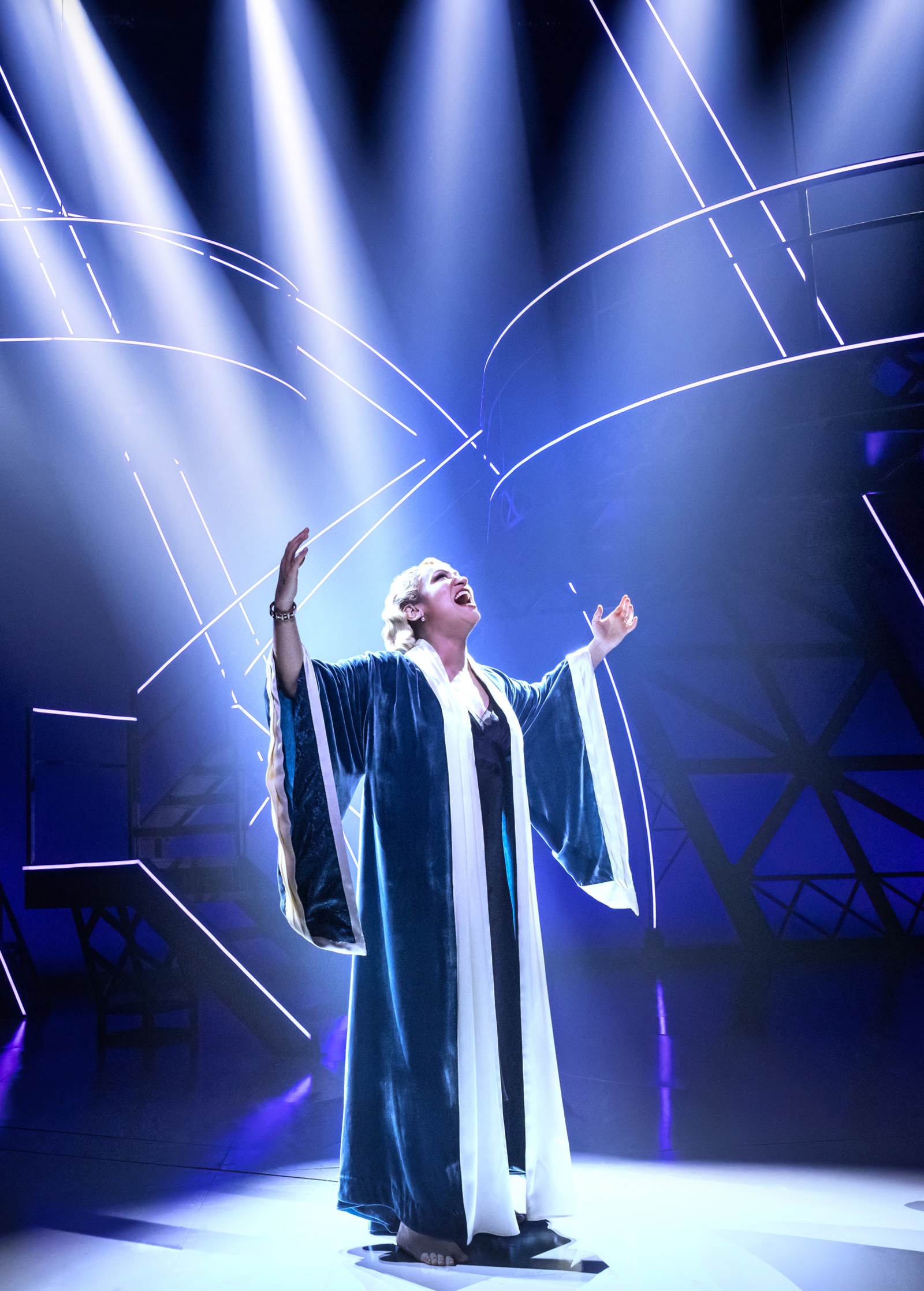
(Photo: Matthew Murphy and Evan Zimmerman)
Lempicka is now giving both of you your Broadway debuts. Where has the idea of Broadway sat in your minds throughout the development of this musical, and throughout your careers for that matter?
CARSON: I will say, I did not think this was going to be a Broadway show because I did not trust Broadway to be open to the complexity of this woman. She behaves in ways that we really do not like women to behave in this culture. I know she's going to be challenging to some people. Do we admire her? Do we not? Are we worried about the lines she is walking? I am. But I love that she is out there trying to get the things she wants and needs to be the artist she has to become. So when I was talking about it at first, I was like, “I'm thinking St. Ann's Warehouse with a dirt floor and scaffolding.” And Matt said, “No, Broadway. This is a Broadway show.” And he was right.
MATT: I grew up with the blessing of privilege. I'm a white guy who's male presenting, and so I was taught, if you believe it, you can live it.
CARSON: I was not taught that. [laughs]
MATT: Right. And of course that's a bullsh*t philosophy. But it's helpful. And also I'm really angry at it because I did believe it and I didn't get it for a long time. Now it's here and I’m deeply grateful and moved and humbled and also aware that if I had gotten this sooner, I wouldn't have been ready. Because you have to enter this space knowing that as much control as you have as a writer, you don't have control over how the piece will be received and what people will say. I guess I always knew if this day ever came, it would only be on a piece like this. I don't know how to write something that doesn't keep me up at night. I get it, we're trying to entertain. We're trying to make people happy. I want to do that too. And also, I want to crack people open. Because I want to be cracked open. Because we need that as a culture.
CARSON: For me, theater has always been like a holy space. Being in this theater, I love that this feels like home. This is the holy space that I recognize and sitting here in the mezzanine, looking at the boxes that are going to be filled with our musicians—it feels home enough that we can do this.
"I don't know how to write something that doesn't keep me up at night." –Matt Gould
As a pair of artists who have been writing about an artist for 16 years, which pieces of yourselves have made their way into Tamara?
CARSON: For me, what I really identify with is the maniacal precision. She would stay up all night painting—these brush strokes in thin, thin, thin layers so that you would get that glow off the canvas. And that is where I really connect with her. This, have to get it right, have to get it right, have to get it right. I will stay here until it's right—or as right as art can ever be.
MATT: For me, I always feel like I am Tamara. [laughs] Though it has a lot to do with the fact that she doesn't want one thing. She wants all things. I want to capture humanity, and I want to be bombastic and large, and I want drum machines, and I also want a heartbreaking violin solo. I want those things to be able to live next to each other. And in a million ways in this life, they can't. It's very hard to get Broadway and also get art. And people will be the judge of whether or not we've achieved that. But she wanted the lover, and the home, and the family. She wanted it all. You don’t get it all. And that, in some ways, is the f**kery of life.
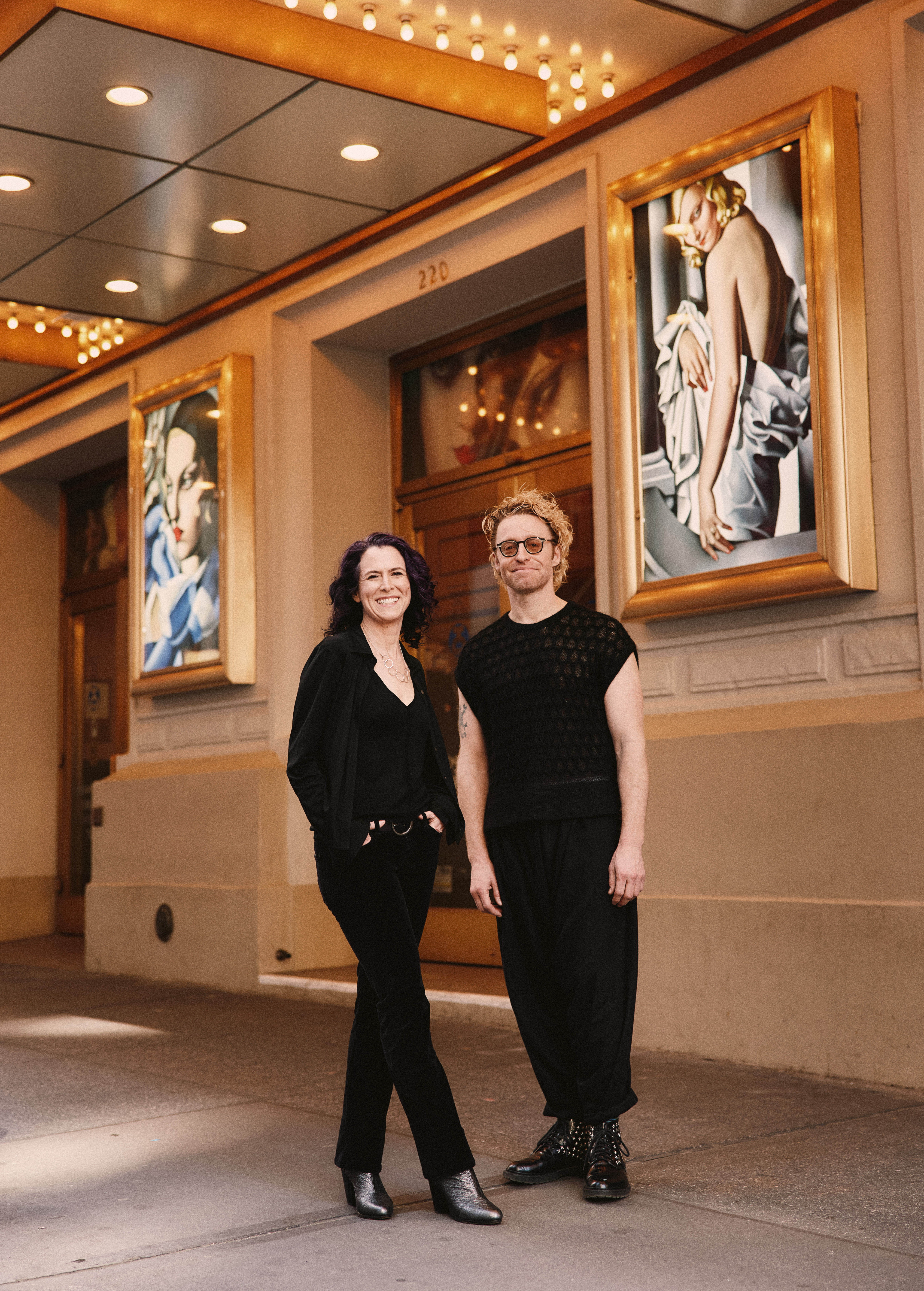
(Photo by Emilio Madrid for Broadway.com)
Related Shows
Star Files
Articles Trending Now
- Death Becomes Her, Maybe Happy Ending, Oh, Mary! and More Earn Nominations for the 2025 Broadway.com Audience Choice Awards
- Maybe Happy Ending Will Be Hitting the Road on a National Tour, Launching Fall 2026
- Ali Louis Bourzgui Reflects on Joining Hadestown, His Upcoming Album and Processing the Experience of Tommy
